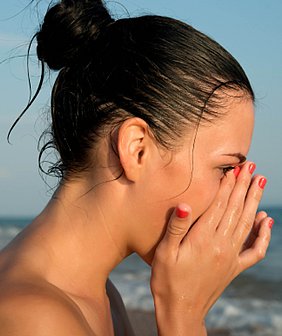EYE IRRITATION DURING WARM SEASONS
Summer is typically the time we spend a lot of time outdoors. In addition to all the fun this season brings, we should also be aware of potential risks to our eyes and take some precautions to keep them healthy.
Let’s look at some eye problems that can occur especially in summer and tips on how to protect your eyes from them.
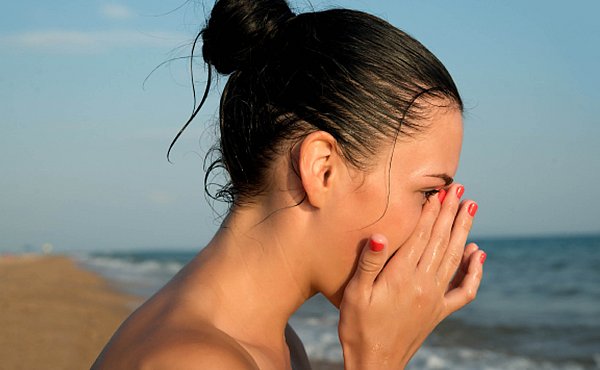

Sunburn on the eyes?
Yes exactly. Too much sun exposure can not only damage your skin, it can also injure your cornea. This is known as corneal burn. Symptoms include dry eyes, blurred vision, and a gritty feeling.
What can you do to protect your cornea from sunburn?
The best eye protection is to wear sunglasses with sufficient UV protection. Your sunglasses should have a tint level (category = cat) 2 or 3. The tint category is usually noted on a sticker or label on the inside of the temple. In extreme radiation conditions, you should wear category 4 sunglasses.
And it’s best not to forget to also apply sunscreen to the areas around your eyes, including your eyelids.
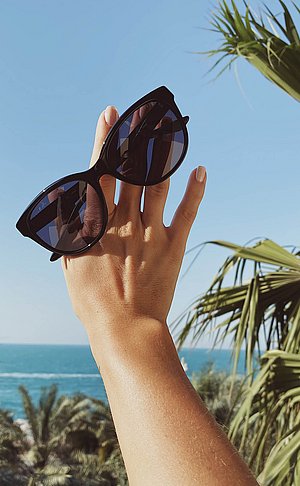
Eye allergies only occur in spring
Unfortunately, that's not entirely true. Even though most eye allergies occur in spring, various allergies can also occur in the summer months. These include allergies to heat, dust and sun or mould and seeds, which often peak at this time. At the beginning and end of the summer season, allergies to certain pollens or organic dust can also occur. Burning, itchy or dry eyes are the most common allergy symptoms.
How can you minimise your allergy risk?
Of course, it's not always possible to prevent exposure to allergens, especially when you are outdoors. But wearing sunglasses and washing your face regularly when you come in from outside can help reduce eye problems caused by them.
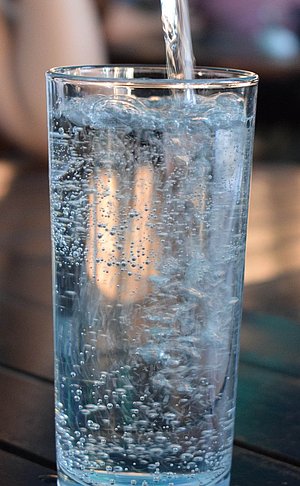
Dry eyes even in summer?
Yes! In fact dry eyes can actually increase in summer. Air conditioners and fans used to cool down from the higher outside temperatures can result in the eyes not being moist enough. Typical symptoms are a coarse grainy or sandy feeling in the eyes.
What helps against dry eyes?
First of all make sure to drink a lot of water. Due to the hot temperatures, you dehydrate faster and your eyes also suffer as the body can no longer produce enough tears. Good hydration can promote normal tear production and prevent dry eyes.
You can also try lubricating eye drops. When buying, make sure to choose drops that don’t contain preservatives, which can be used more frequently.
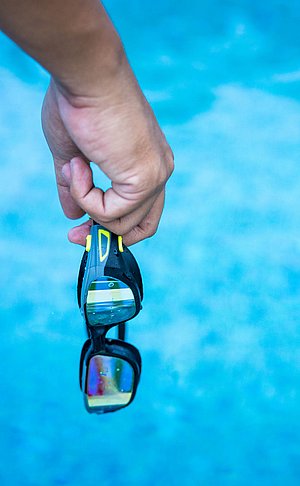
Water is not good for the eyes?
You can't say that in general, but in fact swimming in chlorinated or salt water can have certain effects on the eyes.
The reaction of chlorine with urine, sweat and dirt particles in pools creates irritating chemical compounds that attack the protective tear film of the eyes. Germs can then penetrate the cornea and conjunctiva of the eye more easily, which can cause the eyes to become red and burn.
Salt water itself is not a problem for the human eye. After all, tears are also saline. It is the unusually high salt content in the sea water that can be hard on the eyes: the higher the salt content, the stronger the burning. However, as soon as the eyes get used to the salt water, the burning stops. Sweat has a similar salt concentration to sea water, which is why sweat can cause a burning sensation in the eyes as well.
How can you protect your eyes in the water?
Wear swimming goggles to avoid eye irritation. These should fit well so that they keep the water and therefore dirt and bacteria away from the eyes. If you normally wear glasses, swimming goggles with prescription lenses can even replace visual aids in water.
If you have forgotten your swimming goggles and have an eye reaction, don’t panic. Symptoms usually subside within 24 hours. However, if they don’t, an ophthalmologist should be consulted to rule out infections.
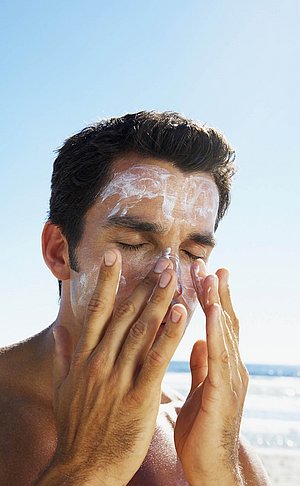
And what are other typical things that lead to eye reactions in summer?
You are certainly familiar with these situations: you’re lying on the beach and the wind is blowing sand in your eyes or you rub sunscreen accidentally into your eyes while applying it.
In these cases, rinse your eyes with water and avoid rubbing. The same advice as before applies here: if symptoms, such as burning or red eyes, persist or foreign bodies can’t be rinsed out, you should definitely consult an ophthalmologist.
Now we wish you a great holiday season armed with tips for your eye protection!
